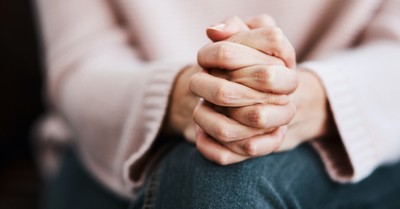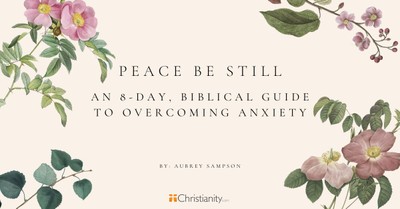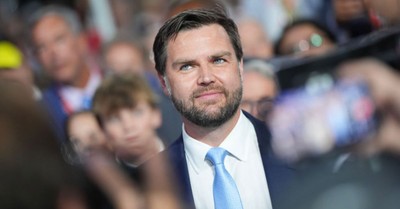What Time’s 100 'Most Influential People' Says to the American Church
Time‘s annual list of the world’s one hundred most influential people has been published.
Forty-five women are on the list, more than ever before. As the magazine notes, one of them is New Zealand’s new prime minister, the youngest female head of government on the planet. A wide variety of ethnicities and nationalities are represented as well.
It is encouraging to see this cultural icon honor our national commitment to “Life, Liberty, and the pursuit of Happiness” for all people. The news reminds us each day that while we have come a long way, we have a long way to go.
Starbucks, the Olympics, and two universities
Rashon Nelson and Donte Robinson appeared on ABC’s Good Morning Americayesterday. After they were arrested for trespassing last week at a Philadelphia Starbucks, their story made national news. On Monday, Starbucks CEO Kevin Johnson apologized to the men. The store employee who called 911 is no longer with the company.
Starbucks plans to close its 8,000 company-owned stores in the US for an afternoon in May to teach workers about racial bias. The training will be provided to about 175,000 employees.
In another story making headlines, Olympic gold medalist McKayla Maroney has told Dateline that the USA Gymnastics team doctor used food to manipulate her. She said she was molested by him hundreds of times.
Earlier this week, Syracuse University suspended an engineering fraternity. According to the university’s chancellor, footage surfaced of members speaking and acting in ways “that are extremely racist, anti-Semitic, homophobic, sexist and hostile to people with disabilities.”
Last week, a fraternity at California Polytechnic State University was sanctioned by its national organization after students dressed as gang members, including one in blackface. The university’s dean of students stated that “racism and hate are unwelcome here, in any form.”
Where we agree with our culture
As I noted this past Tuesday, our cultural forefathers in the Greco-Roman world separated the “spiritual” from the “secular” and did their “religious” duty so the gods would give them what they wanted.
We’ve added to their syncretism the postmodern claim that all truth is personal and subjective. The Bible has become a diary of religious experience, considered by many to be no more authoritative than any other book.
Consequently, most of the moral commitments embraced by our culture are clearly contrary to biblical truth. From abortion to same-sex marriage to gender confusion to euthanasia, it’s obvious that our society is on a descending road into spiritual and ethical darkness.
One value embraced in America today does align with biblical truth: our shared commitment to equality for women and ethnic minorities. Christians should be just as outraged as secular Americans by stories of sexual assault and discrimination. We should be just as angered as secular citizens by stories of racial prejudice.
But even here, our motives are quite different.
Why we disagree with our culture
As noted, American culture has embraced an ethos of tolerance, claiming that all truth claims are equally valued and relevant. Thus, all races and genders are equally valued. Tragically, this truth claim has been extended to validate marriage regardless of gender and the “rights” of women to the exclusion of the rights of the preborn.
By contrast, Christians embrace an ethos built on the sanctity of all life. We know that all people, regardless of race or gender, are created in the image of God (Genesis 1:26-27). Now “there is neither Jew nor Greek, there is neither slave nor free, there is no male and female, for you are all one in Christ Jesus” (Galatians 3:28).
Our commitment to the sanctity of life leads us to embrace racial and gender equality. But it also leads us to defend life from conception to natural death and to defend marriage and gender identity as intended by our Creator.
Reflecting heaven on earth
Here’s one practical consequence of this commitment: churches and Christian organizations should set the standard for including women and racial minorities in our communities and ministries.
Acts 13 names five leaders of the church at Antioch. The first, Barnabas, was a wealthy Jew from Cyprus. The second was “Simeon who was called Niger”; “niger” is Latin for “black,” indicating that he likely came from Africa. So did the third person named “Lucius of Cyrene.” The fourth, “Manean a lifelong friend of Herod the tetrarch,” was closely identified with the son of Herod the Great. The fifth, Saul, was a former Pharisee from Tarsus.
Can you imagine a more diverse group?
In addition, the first witnesses to the resurrection were women (Luke 24:1-10). The first European convert to Christianity was a woman (Acts 16:14-15). Among the leaders of early Christianity were Phoebe (Romans 16:1-2), Priscilla (v. 3), and Junia (v. 7).
In heaven, we will gather with people “from every nation, from all tribes and peoples and languages” (Revelation 7:9). What will you do to help your congregation on earth reflect your congregation in heaven?
Photo courtesy: ©Thinkstock/SlPhotography
Publication date: April 20, 2018
For more from the Denison Forum on Truth and Culture, please visit www.denisonforum.org.
Do you want to live a life in whole-hearted pursuit of loving God and others?
Read today's First15 at www.first15.org.
















